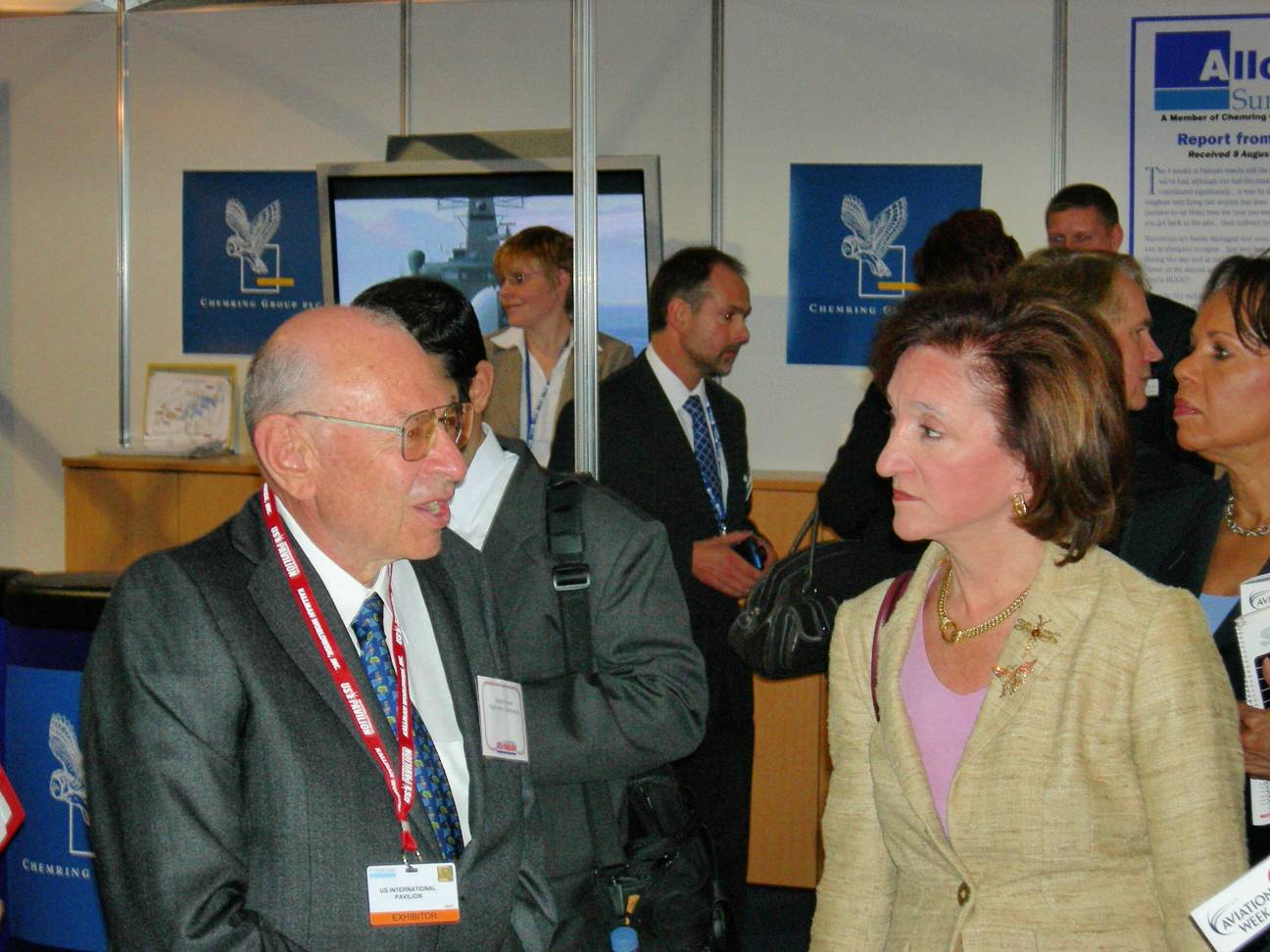
EXHIBIT 99.1
Mystic's Flight Safety Has A Jolly Good Show In England
International Air Show Exposes Technologies To Global Market
By Anthony Cronin, Day Editor
Published on 7/28/2006
Mystic - The chairman of a Mystic-based aviation company says his firm received strong industry and congressional interest in its emerging technologies during this past week's Farnsborough International Air Show in England.
Samuel A. Kovnat, chief executive officer and chairman of Flight Safety Technologies, said Thursday that his firm was one of a handful of state-based companies featured at the air show, which attracted more than 250,000 of the industry's top executives, along with defense officials, legislators and procurement specialists from across the globe.
It was the first year that Flight Safety Technologies appeared at the show. Kovnat said the company's booth attracted the interest of numerous U.S. senators attending the show as well as the top administrator of the Federal Aviation Administration.
Flight Safety Technologies, founded in 1997, has three emerging technologies - a turbulence-avoidance system, a collision-avoidance system and a countermeasure to shoulder-fired missiles - that it hopes to market.
Its "Socrates" system is designed to detect the deadly turbulence, or wake, that spins off an airliner's wings as it takes off or lands. The system would let air traffic controllers know when the wake has dissipated, allowing for subsequent planes to safely land and take off.
The deadly turbulence, known as wake vortexes in the industry, could cause a plane following another aircraft too closely to flip over. Besides the inherent safety issues, the problem also results in costly expenses for airports and airlines. Air traffic controllers typically stagger commercial airliners from three to six miles apart as they land to prevent them from encountering turbulence. Industry experts have said airports could boost their capacity by 20 percent if a turbulence-avoidance system were in place.
The Mystic firm is part of a U.S. government-industry partnership developing wake-avoidance technology aimed at easing airport congestion worldwide.
Kovnat said that during the international air show he met with Marion Blakey, the FAA chief administrator, along with five of her staff members who were interested in all three of the Flight Safety's technologies.
In addition, Kovnat said five U.S. senators - Ted Stevens of Alaska, Thad Cochran of Mississippi, James Inhofe of Oklahoma, Richard Shelby of Alabama and Pat Roberts of Kansas - spoke with him in detail about Flight Safety's systems. Those five senators hold key positions on a host of Senate committees, including Appropriations, Commerce, Science and Transportation.
Kovnat said he also met with Robert Tuttle, the U.S. ambassador to the United Kingdom, as well as military officials and procurement specialists from numerous countries, who asked about the turbulence-avoidance systems and other Flight Safety technologies.
Kovnat said a NASA estimate projects annual savings of up to $680 million if the system were installed at 19 major U.S. airports, which he said is more than the $400 million annual operating outlay for such systems. So far, the Socrates system has received $30 million in congressional funding and is now ready for operational, or "beta," testing in federal fiscal year 2007, which begins Oct. 1.
Earlier this month, the U.S. House Transportation Committee asked FAA officials to increase funding for research on wake-vortex issues, especially in light of the manufacture of new, larger airliners by Airbus and rival Boeing. Flight Safety Technologies serves as the industry's prime contractor under contract to the Volpe National Transportation Systems Center, which is part of the federal transportation department. Funding for the technology comes from NASA.
The Mystic firm's "Unicorn" collision-avoidance technology originally was devised for general aviation aircraft. The firm has since expanded its uses to include unmanned aerial vehicles for military, government and commercial applications.

Flight Safety Technologies Chairman and CEO
Samuel A. Kovnat, left, speaks to Marion Blakey,
the Federal Aviation Administration's top official,
during the Farnsborough International Air Show
in England.